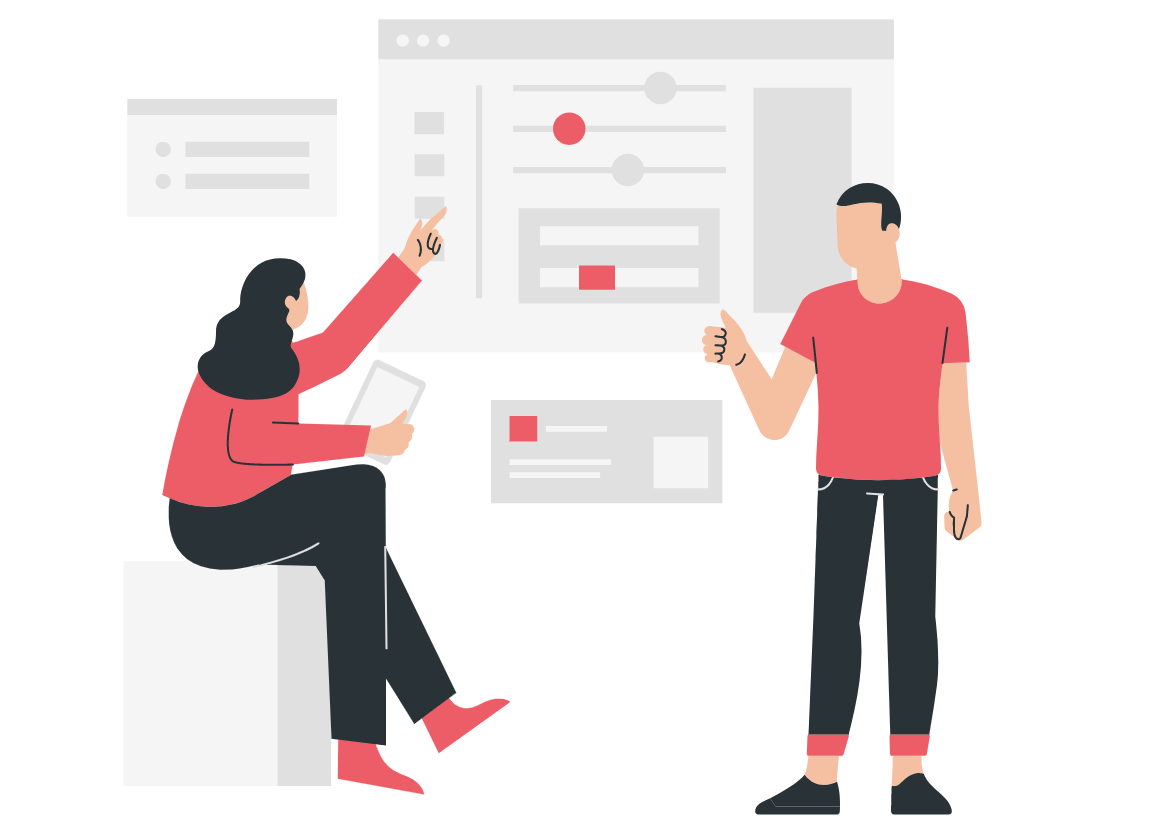The Power of Big Data in Mobile App Development and Real-World Use Cases

Data has become incredibly valuable in the modern era. With the advent of modern technology, data is being generated at an unprecedented pace from various sources like social media, internet transactions, sensors, and other sources. This massive amount of data, referred to as Big Data, is too complex and voluminous to be analyzed using traditional data processing techniques. So, Big Data development has emerged as a consequence of the need to proceed with large volumes of Data.
How can Big Data be beneficial for Big Data product development, and how to make your data work for you? Let’s explore.
What Is Big Data Analytics
Big Data analytics is the process of examining large and complex datasets to extract useful insights and make informed decisions.
Big Data analytics app involves the use of advanced analytical techniques, including statistical analysis, machine learning, and data mining, to extract meaningful insights from the data. These insights can be used to identify patterns, trends, and relationships that would have otherwise gone unnoticed. With Big Data analytics, organizations can gain a competitive advantage by making data-driven decisions, improving customer experiences, reducing costs, and improving operational efficiency.
But what it has to do with software?
Big Data app development involves creating software applications with data-related technologies that can efficiently process and analyze large datasets. A Big Data analytics app is designed to handle massive amounts of data and extract valuable insights and trends that can help businesses make data-driven decisions
Big Data in software development is not an infrequent practice now and is leveraged by well-known apps like Netflix, Spotify, Amazon, etc. Thanks to being more data-driven, the apps have become more user-oriented and favored by many.
So, let’s discover what Big Data can bring to your mobile app development.

The Importance of Big Data in Mobile App Development
Big Data and mobile apps are a strong combination that can unleash unseen opportunities in the business, make it more data-driven, and lead to increase revenue. The benefits are enormous and include but are not limited to the following ones:
Getting to Know Users
One of the most important aspects of mobile app development is understanding your users. This understanding can be gained through a variety of methods, including user research, surveys, and usability testing. However, perhaps one of the most powerful tools available to developers today is Big Data.
Big data application development can help app owners gain deep insights into user behavior, such as their preferences, interests, and habits. By analyzing large datasets, they can identify patterns and trends that might not be immediately apparent through other methods.
For example, Big Data might reveal that users in a particular geographic region are more likely to use a certain feature or that users who engage with the app on weekends tend to have a different set of preferences than those who use it during the week.
Starbucks, the coffee giant, is a leader in using big data and artificial intelligence to drive its marketing, sales, and business decisions. With 25,000 stores globally, the company processes a staggering 90 million transactions every week.
Starbucks leverages its popular loyalty card program and mobile application to collect individual purchase data from millions of customers. With the help of advanced Business Intelligence (BI) tools, the company analyzes this data to predict customers' preferences and sends tailored offers to them through their app and email. This system not only increases sales volumes but also drives customer engagement, encouraging them to visit Starbucks stores more frequently.
User Experience Analysis
Big Data analytics can also be used to analyze user experience. Developers can use Big Data to track user interactions with the app, identify areas that need improvement, and make necessary changes to enhance the overall user experience.
McDonald's is a global fast-food chain with over 34,000 local restaurants serving approximately 69 million customers in 118 countries. The company generates annual revenue of $27 billion by selling 75 burgers every second and serving an impressive 62 million customers daily. To enhance the overall customer experience and improve its operations, McDonald's is utilizing Big Data software development.
By analyzing data on various factors such as menu information, order sizes, customer ordering patterns, and wait times, McDonald's is able to optimize restaurant operations at specific locations using insights gained from its analytics system.
More Targeted Marketing
Big Data can be used to create more targeted marketing campaigns. By analyzing user data, developers can identify specific demographics and create targeted marketing strategies to reach them. This can help businesses save time and money by focusing their marketing efforts on the most profitable areas.
Netflix employs Big Data to enhance its marketing efforts. For instance, for its popular series "House of Cards," Netflix produced over 10 variations of the trailer. The trailer shown to each user is customized based on their viewing habits. If a user has watched a significant number of shows featuring female leads, the trailer that highlights the female characters will be displayed to them. The algorithm adapts to each user's preferences, ensuring that the marketing campaigns are tailored to their interests.
As a result, during the first week, the final season consisting of eight episodes attracted an average viewership of 1.53 million individuals in the United States.
Real-Time Data Acquisition
Big Data can also be used to acquire real-time data. This data can be used to monitor user behavior and track app performance. Real-time data can also be used to identify potential issues before they become major problems, allowing developers to resolve them quickly.
Procter & Gamble, a 179-year-old company, produces products that are used by people worldwide 2-3 times a day. The company has recognized the potential of Big Data app development and has integrated it into various business units around the world.
P&G places a strong emphasis on using Big Data to make better, smarter, real-time business decisions. To achieve this, its Global Business Services organization has developed tools, systems, and processes that enable managers to have direct access to the latest data and advanced analytics. Despite the emergence of many new companies in the market, P&G remains a major player due to its ability to adapt and leverage advanced technologies such as Big Data and development.
Personalized Experience
Big Data can be used to create a personalized experience for users. By analyzing user data, developers can create personalized recommendations and content based on user preferences. This can help increase user engagement and retention.
For instance, Netflix analyzes Big Data to predict users' preferences based on a variety of data points. This includes customer interactions on the app, responsiveness to shows and movies, device information like date, time, location, and type of device used to watch, and viewing habits such as pause and resume times, completion rates, search queries, preferred genres, and feedback and ratings from subscribers.
Using these data points, Netflix can accurately predict users' interests with an 80% accuracy rate, suggesting content that users are likely to be interested in watching next.
Social Media Analytics
Social media analytics can be used to track user behavior on social media platforms. This information can be used to create targeted marketing campaigns, as well as to monitor user sentiment and feedback. Social media analytics can also be used to identify potential issues and address them in a timely manner.
Major airlines, such as Delta, monitor social media activity to gauge customer satisfaction regarding delays, upgrades, in-flight entertainment, and other aspects of the flying experience. Twitter is particularly useful for this purpose. For instance, if a customer tweets negatively about lost baggage before boarding a connecting flight, the airline will detect the negative tweet and notify their support team.
The support team will then send a representative to the passenger's destination, offering a complimentary first-class upgrade ticket for the return flight and providing information about the tracked baggage with a promise of prompt delivery upon arrival. As a result of this gesture, the customer is likely to share their positive experience on social media, bolstering the airline's reputation.
Big Data Application Development by Celadon
Big Data is a real treasure when it comes to business running. If you are looking for expert Big Data app solutions to drive your business forward, you’re about to knock on the right door. The door leads to Celadon.
Our team of experienced developers specializes in developing data-driven applications that can help you extract valuable insights from your data and make more informed decisions.
Contact us to learn how we can help to drive business growth and innovation.